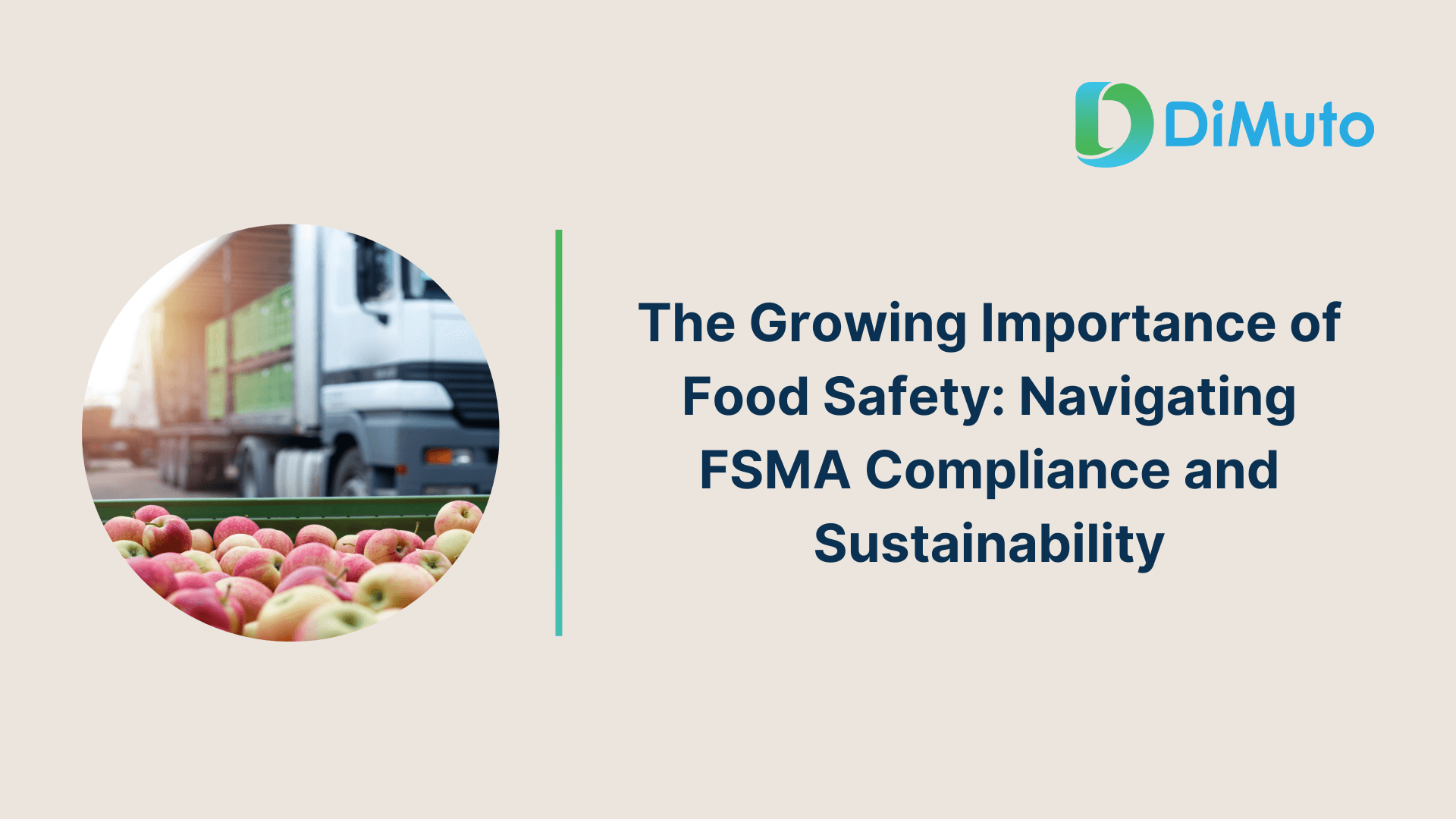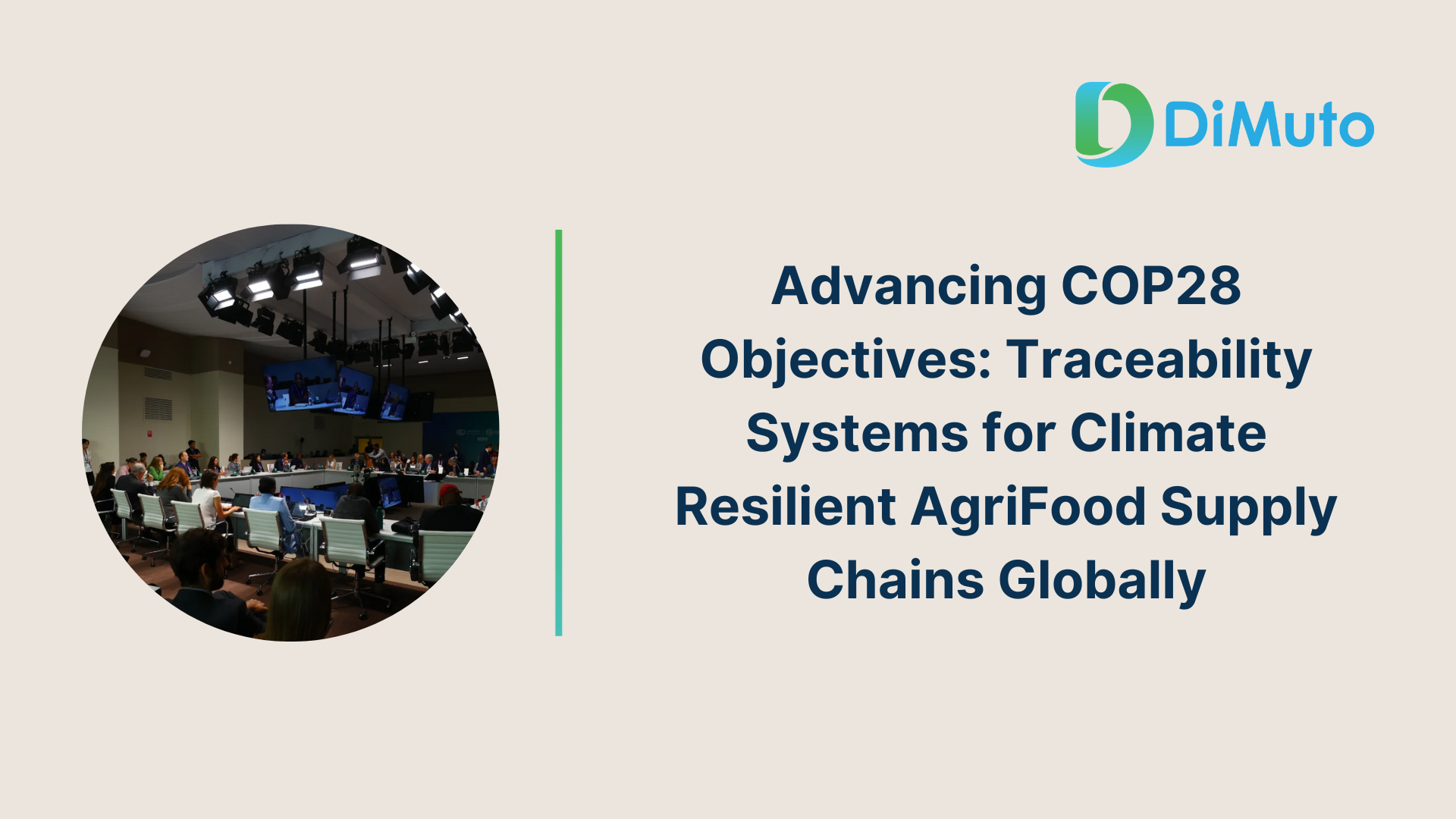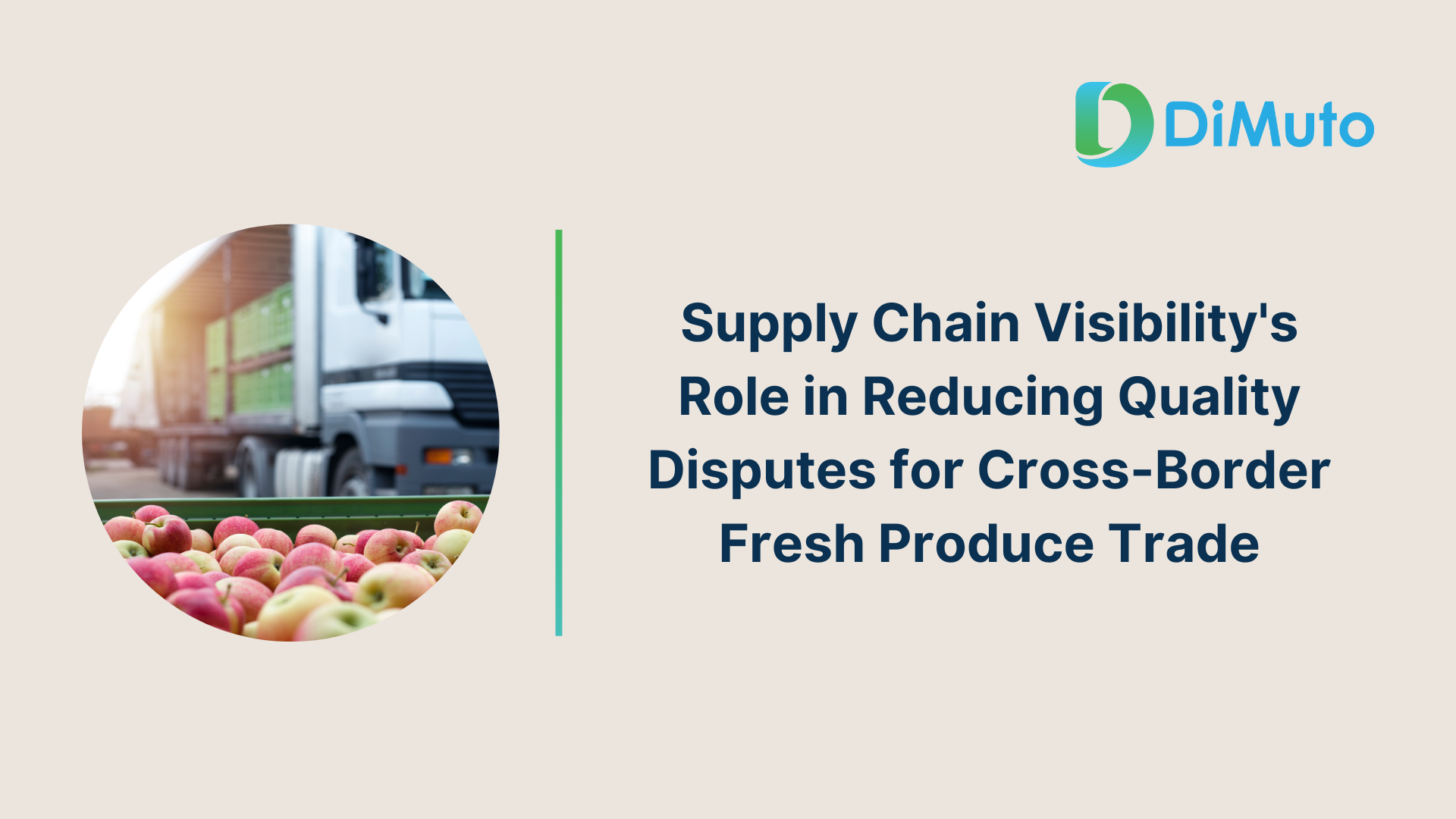
How DiMuto Powers DiLumi Fresh Fresh food categories account for up to 40% of a grocery chain’s revenues but are challenging to manage due to factors like price volatility, supplier fragmentation, perishability, and complex replenishment processes. (Mckinsey, 2014) These issues are further compounded by siloed data across the supply chain, which prevents stakeholders from accessing [...]

A Crisis of Waste in the Global Food Supply Chain The agrifood industry faces a paradox: while over 800 million people go hungry, nearly 40% of all food produced globally goes uneaten—a staggering 2.5 billion tonnes each year(Source: WWF). Much of this waste happens before food even reaches consumers—during harvesting, storage, transport, and distribution (Source: [...]

In today’s rapidly globalizing market, the agricultural sector is under increasing pressure not only to feed the world but to do so sustainably. With consumers increasingly demanding transparency, evidenced by 94% likely to remain loyal to a brand that offers complete transparency (Source: Forbes), businesses can no longer overlook the need for visibility in their [...]

The Challenge of AgriTech Adoption In agriculture, innovation moves quickly, but adoption often lags. Despite the availability of groundbreaking technologies designed to tackle inefficiencies, reduce waste, and promote sustainability, many growers remain hesitant to embrace these tools. The issue isn’t necessarily the technology itself—it’s the lack of alignment with growers’ motivations and needs. A recent [...]

by Athena Macatangay- Marketing Specialist, and Kimberly Ho – Sustainability Lead Reducing food waste and increasing fresh food accessibility are causes close to our hearts at DiMuto. Recently, we joined the Fridge Restock Community SG Ltd in an initiative that brought together people dedicated to supporting their communities and building a sustainable future. Partnering with [...]

by Kimberly Ho, Sustainability Lead at DiMuto There is an increasing urgency for agrifood businesses to embrace sustainable sourcing. During a recent sustainability webinar, I shared insights on how green sourcing is not only reshaping the industry but is also a vital part of addressing some of the world’s biggest challenges, like climate change, labor [...]

by Rubén Tapia, Managing Director of the Americas at DiMuto In today’s food industry, safety has taken on new urgency—and it’s clear why. As someone involved in the global trade of fresh produce and food products, I’ve come to realize just how critical transparency is. According to a 2024 CDC report, approximately 48 million people [...]

The recent COP28 UAE Declaration on Sustainable Agriculture, Resilient Food Systems, and Climate Action stands as a beacon of hope amidst the increasing threats posed by climate change to agriculture and food security worldwide. Endorsed by 158 countries, this declaration underscores the urgent need for collective action to address the challenges faced by farmers, fisherfolk, [...]

In today’s world of rapidly advancing technology, the agrifood industry is facing a critical decision point. As the global population grows, the already complex and multifaceted agrifood supply chain is under increasing pressure. To ensure efficiency, transparency, and sustainability in this vital chain, digital transformation is no longer a luxury – it’s a necessity. Digitalization [...]

The trade of fresh produce across borders is crucial for meeting global food demand and providing consumers with a diverse range of fruits and vegetables year-round. However, quality claims often lead to disputes between trading partners. Technological advancements and collaborative practices can facilitate supply chain visibility and reduce these disputes. By ensuring transparency and accountability [...]










